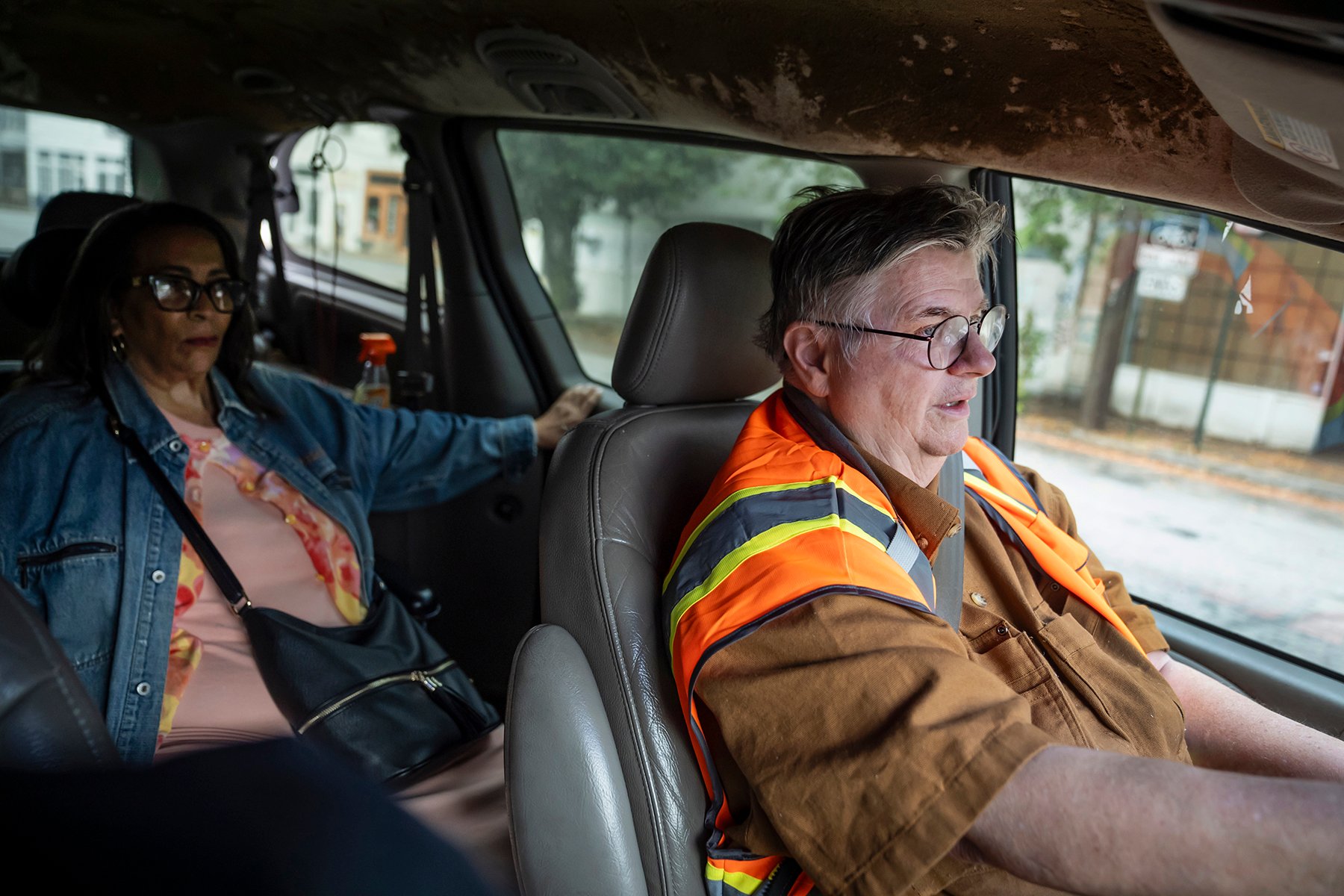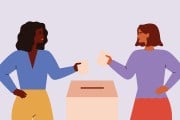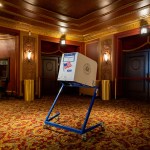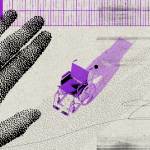Even as a growing number of organizations offer free or discounted rides to the polls on Election Day, they’re still under-equipped to serve voters with disabilities, particularly those who rely on wheelchairs and other mobility aids. In Georgia, one grassroots organization is working to bridge the gap and ensure that disabled voters are counted.
Roll 2 the Polls was started by longtime disability rights activist Zan Thornton, 61, over a decade ago. It began as an informal project organized through Georgia ADAPT, a disability rights protest group. Individual group members with wheelchair vans gave rides to others.
Since then, Roll 2 the Polls has expanded to include dozens of volunteer drivers and phone dispatchers, most of whom are disabled. The group is able to rent extra wheelchair vans through funding from the nonprofit organizations New Disabled South and the American Association of People with Disabilities.
“In 2022, Zan and the team were able to drive hundreds of voters to the polls during the runoff election. So far, they have received requests for, probably at this point, close to a thousand rides this year,” said Dom Kelly, president of New Disabled South.
Organizers have been able to meet disabled voters’ needs despite the limited funding, and by extension, capacity.
Thornton’s wife, Elisabeth Huhn, 70, is a cancer survivor who has been a driver for Roll 2 the Polls since its inception. This year she is playing a support role — when a scheduled driver doesn’t show up or a rented van isn’t available, she drives out with their wheelchair van to transport voters. She is proud of her work.
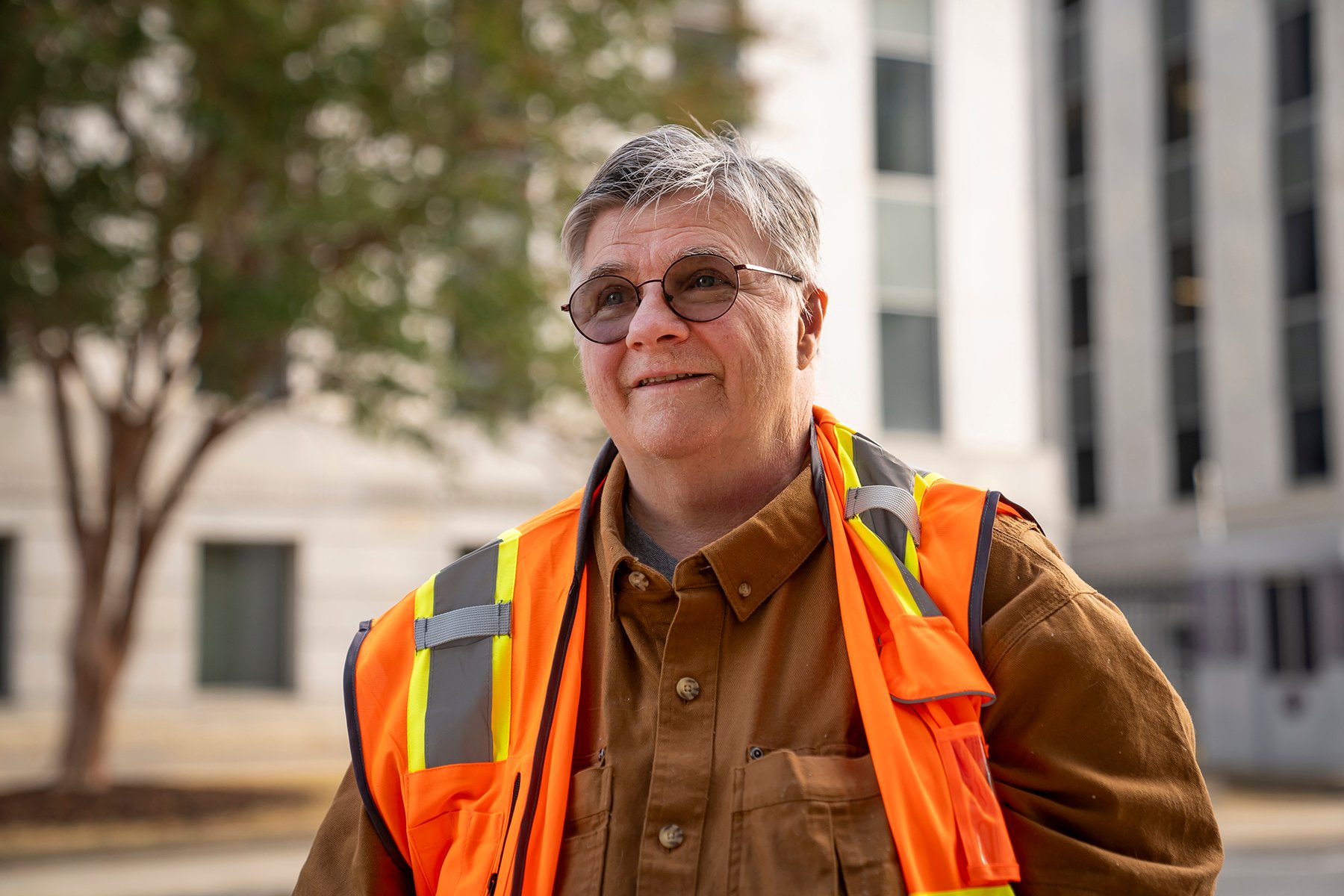
“A lot of the people that I’ve taken to vote are people whose parents were never allowed to vote [because of Jim Crow laws and racist intimidation], and so they vote every single time, no matter what obstacles they have to overcome,” Huhn told The 19th. “To be able to be part of that with somebody is just the most incredibly wonderful experience. It’s one of the most fun things I’ve ever done in my life.”
Huhn didn’t have any difficulty voting this year, but has in the past. Long lines, in particular, can be difficult for her due to fatigue.
“In 2020, I went and stood in line for five hours. I was smart enough to bring a chair with me, a folding chair. There’s no way I could have stood. I can’t stand for 10 minutes,” Huhn said.
Lawrence Harper, 71, lives in an assisted living facility in Decatur, Georgia. In 2019, he broke his neck and has since relied on a wheelchair to get around.
-
Read Next:
Roll 2 the Polls has taken Harper to vote twice, the first time in 2020, his first election after his injury. He was assisted in the voting booth by poll workers.
“The person that was with me had to push the buttons because my hands don’t work all that well,” he said.
Harper is confident in his choice of candidate: He voted for Vice President Kamala Harris.
“I watch Fox, I watch CNN. But I form my own opinion. I don’t allow any talking heads to persuade me one way or the other,” he said.
According to a new report from New Disabled South Rising, the advocacy arm of New Disabled South, disabled voters who didn’t vote in 2020 exceeded the margin necessary to win the presidency in multiple southern swing states, including Georgia. There is little polling about disability and partisanship available, but courting these voters could change outcomes for candidates.
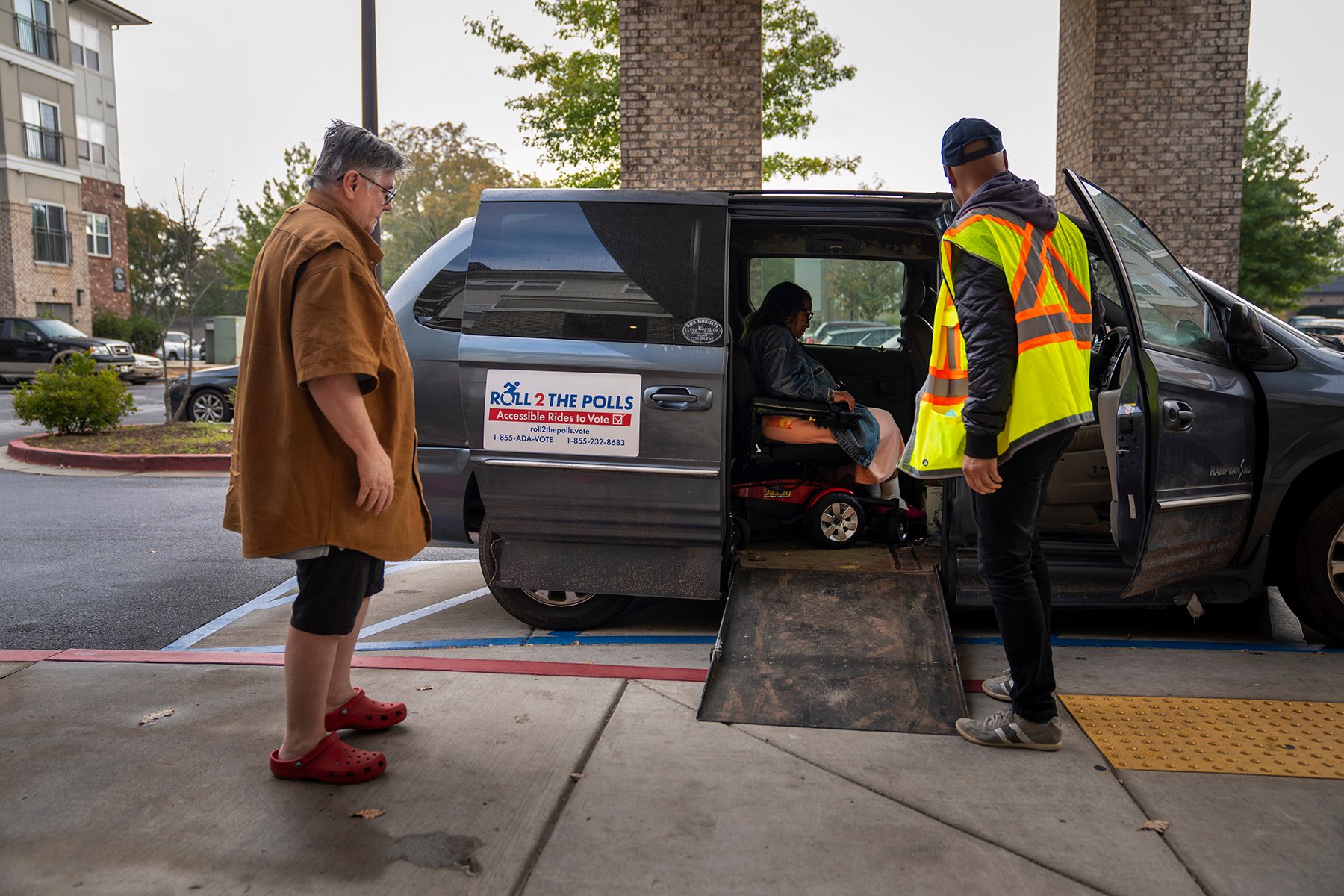
“A fundamental reality in our country is that you have to vote in order to get people to listen to you,” Huhn said. “This is a way to get the disability community to have candidates pay attention to us, so when they come up with policies, they include us in their policies.”
Parker Glick, 36, moved to Rochester, New York, from Decatur, Georgia, two years ago and volunteers as a phone dispatcher for Roll 2 the Polls. He first got involved with the organization during the Georgia Senate runoff election in 2022. Glick has a physical disability and uses a wheelchair. He is proud of the work, but frustrated that organizations working to get voters to the polls didn’t consider disabled people from the beginning.
“What I’d love to see is a disabled person working for one of the big groups. It’s cool that groups are collaborating with us,” Glick said. “But we also know that the bigger name entities get better funding and something like this is equally important. I wish that we could stop being considered an afterthought.”
To check your voter registration status or to get more information about registering to vote, text 19thnews to 26797.
